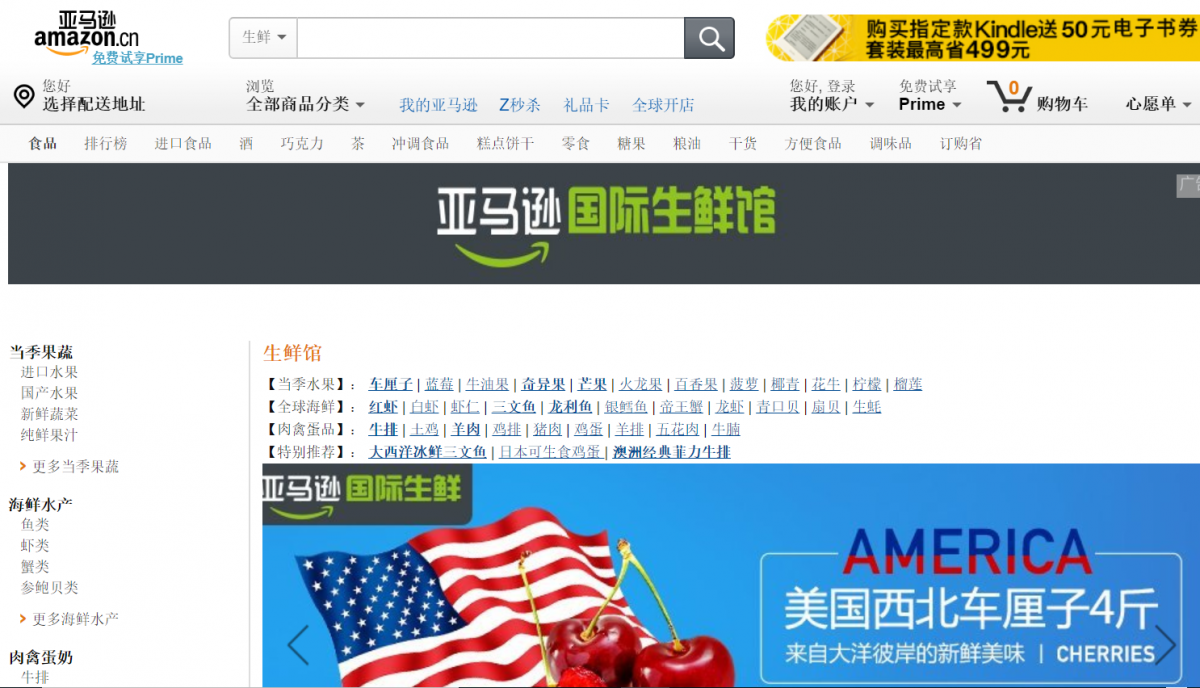You are here
Back to topAmazon to Exit China

Snapshot of amazon.cn fresh product page on 19 April 2019.
After 15 years of struggling to claim its share of China’s e-commerce market, Amazon has finally thrown in the towel. On Wednesday this week, reports began to emerge (1, 2) that Amazon is planning to close its Chinese e-commerce platform. Further comments from the company clarified the marketplace on amazon.cn will cease to provide seller services effective July 18, while the company will instead shift focus toward its cross-border e-commerce and AWS cloud services.
Just a few years ago, Amazon was still considered one of the main competitors in Chinese e-commerce – if not for market share, at least for brand recognition and perceived potential. The company made headlines in 2014 when it invested $20 million in Chinese fresh food e-commerce website, Yummy77, and again in 2015 when it launched a fresh supermarket on its amazon.cn domain. At the time, Yummy77 was claimed to be the leading fresh produce e-commerce company covering Shanghai and the nearby provinces of Zhejiang and Jiangsu. It was expected the capital injection would help Yummy77 to expand its coverage nationwide while helping Amazon to finally establish a competitive edge in China’s booming e-commerce market.
One must recall, 2014-2015 were the early years of fresh produce e-commerce and investors were scrambling to get their share of the sector’s explosive growth. Fruitday had just received its C round of financing led by JD.com, and Tmall had just launched its own fresh supermarket partnering with the Alibaba-backed fresh fruit e-commerce giant, Yiguo.
Having entered China in 2004 with a $75 million acquisition, Amazon was one of the earliest foreign investors in Chinese e-commerce, and the company was certainly hoping its foresight and patience would finally pay off with the Yummy77 partnership. However, this hope was short lived as Yummy77 closed its doors and filed for bankruptcy in 2016 citing liquidity problems and disputes among investors.
Amazon is said to have struggled in China for multiple reasons ranging from localization issues to government interference. In Q4 2018, Amazon was reported to have a mere 0.6% market share among China’s B2C e-commerce platforms, while Tmall held a dominating 61.5% and JD.com had 24.2%.
Although Amazon is closing its third party platform in China, Chinese consumers will still be able to purchase products from overseas sellers on Amazon global websites.














Add new comment